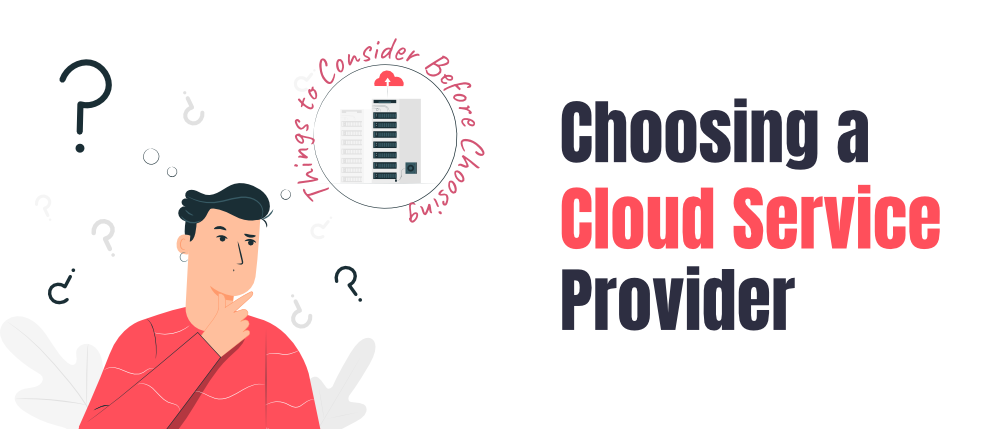Efficient communication with clientele stands as a cornerstone of any business’s triumph. Contact Center as a Service (CCaaS) has arisen as a remedy facilitating smooth interactions with customers across multiple platforms, thus optimizing communication and bolstering customer service. Nevertheless, pinpointing the ideal CCaaS provider can pose a formidable challenge. This article delves into pivotal factors to contemplate, aiding you in making a judicious choice while opting for a CCaaS provider.
Align with Your Business Priorities
Before exploring CCaaS providers’ features, ensure they align with your business priorities. Verify that these features meet your specific communication needs and strategic goals, whether it’s improving customer service, increasing sales, or enhancing support.
Scalability and User Management
As your business expands, your communication requirements will also increase. Evaluating the provider’s adaptability to accommodate fluctuations in size, whether it involves expansion or reduction, is a vital factor to consider, particularly when incorporating contact center AI. Can you effortlessly add new users to the system as your contact center expands? Choosing a provider equipped with intuitive management tools and facilitating smooth user onboarding can prevent future complications. It’s vital to verify that the CCaaS platform can scale effectively to support your long-term growth for sustained success.
App Integrations and Compatibility
Businesses often rely on various software applications to streamline operations. When choosing a CCaaS provider, consider needed integrations. Some platforms offer built-in integrations with popular systems, while others may require third-party integrations. Evaluate compatibility with existing apps and processes for a smooth transition and optimal efficiency.
Available Support Options
Effective customer support is a must when dealing with communication systems. Many CCaaS providers charge extra for live technical support and onboarding assistance. Research the support options provided by each provider. How accessible is their support team? Are there varying tiers of support, including around-the-clock assistance or personalized account management? Knowing the extent of available support is crucial for addressing technical issues or navigating challenges during implementation.
Training and Learning Resources
Not all CCaaS solutions are created equal in terms of ease of use. Some platforms may have a steeper learning curve than others. Consider the training and learning resources provided by the CCaaS provider. Are there comprehensive tutorials, documentation, or training programs available? Ensuring that your team can quickly adapt to the new system will minimize disruptions and improve productivity.
Industry-Specific Features and Compliance
Various sectors possess distinct requirements and regulations. For instance, healthcare entities are obligated to adhere to Healthcare must follow HIPAA, finance follows PCI. Check if the CCaaS provider meets your industry needs. Verify that the platform complies with pertinent regulations and provides functionalities customized to your sector’s individual business workflows.
Security and Compliance
Before finalizing your choice of CCaaS provider, thoroughly assess their security measures and compliance standards. Check for certifications and standards that attest to the provider’s commitment to security.Review their security infrastructure, identity management, physical controls, and data backup policies to ensure compliance with data protection laws and protect customer data without compromise.
Technical Capabilities
Your CCaaS provider should offer a robust set of technical capabilities to support your current applications and future needs. Evaluate whether your existing software and applications can seamlessly integrate with the provider’s cloud infrastructure. Standard interfaces and APIs for integration are crucial for flexibility and compatibility. Additionally, consider the provider’s ability to offer hybrid cloud solutions and their adherence to service level agreements (SLAs) to guarantee performance and reliability.
Cost Considerations
While cost should not be the sole determining factor, it is a critical consideration. Cloud contact centers have varying pricing models, making direct comparisons challenging. To make an informed decision, map out your organization’s requirements in detail. Consider factors such as consumption timelines, scalability options, and any hidden costs that may arise during implementation and usage. Choose a pricing model that aligns with your budget and long-term objectives.
Business Health
The stability of your chosen CCaaS provider directly impacts your business’s stability. Evaluate the provider’s financial records, management structure, reputation, and referrals from existing customers. Look for any legal issues or third-party audits that may raise concerns. A reliable and financially sound provider is more likely to offer consistent service and support over the long term.
Support and Service Level Agreements
Quality support is essential when dealing with communication systems. Investigate the provider’s support offerings, including response times for technical issues and the availability of support services. Consider provider’s dedicated account management or extra support resources, even if they come with added fees.
Total Cost of Ownership (TCO)
Assessing total cost of ownership (TCO) is vital for informed decisions. Calculate direct and indirect costs linked to the CCaaS provider. Direct costs may include subscription fees, setup fees, and usage fees. Indirect costs encompass training, migration, and integration expenses. Understanding the full cost picture will help you budget effectively and avoid unexpected financial burdens.
Conclusion
Choosing the right CCaaS provider requires careful evaluation. Aligning with strategic goals, assessing scalability, compatibility, support, and regulatory compliance ensures effective communication and customer support. Evaluating technical capabilities, security, and total cost of ownership (TCO) is vital for meeting present and future needs within budget. Additionally, considering the provider’s reputation ensures reliability. Prioritizing these factors enables confident decision-making, enhancing communication infrastructure, customer satisfaction, and overall business success.
